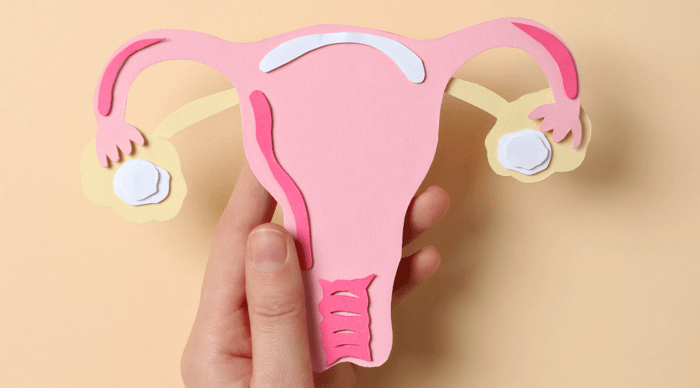You’re more anxious than usual. Your sleep isn’t as deep. Your periods are…different. But life is busy, stress is high, and fatigue seems like the norm these days.
Still, you’re wondering: Is this just burnout - or is something deeper going on?
If you’re in your late 30s to mid-40s and feeling a little ‘off,’ you could be in perimenopause, the hormonal transition that can begin years before your period officially stops.
Despite affecting millions of women, perimenopause is often overlooked or misdiagnosed because its early symptoms can look a lot like everyday exhaustion.
Here’s how to tune into your body, spot the subtle signs, and support your system through this natural phase of life.
1. Your Cycle is Changing - but Not in Obvious Ways
Perimenopause doesn’t always start with missed periods. It often begins with shorter or more intense cycles, heavier flow, or spotting between periods [1].
What’s happening? Progesterone - a calming, balancing hormone - starts to decline first, leaving oestrogen unopposed. This imbalance can lead to irregular bleeding, mood swings, and even breast tenderness.
2. You’re Sleeping, But You’re Not Rested
Perimenopause often disrupts sleep architecture - you may fall asleep fine but wake at 3 a.m., wired and unable to return to sleep. This is partly due to declining progesterone (a natural sleep aid) and fluctuating cortisol levels [2].
Magnesium, stress management, and nervous system support (like breathwork) can be game changers here.
3. Your Mood Feels... Less Stable
Emotional reactivity, irritability, or a sense of ‘inner agitation’ are common early signs of perimenopause. These can be triggered by changes in oestrogen levels, which affect serotonin and GABA, neurotransmitters that regulate mood and calm [3].
You might feel more sensitive to stress, sound, or even social interactions - all of which are valid signals that your hormones are shifting.
4. You’re Not Sweating… But You’re Hot
Hot flashes aren’t always full-body flushes. They can start subtly: feeling overheated at night, removing layers during meetings, or waking slightly damp. These temperature shifts are linked to hormonal fluctuations that affect the hypothalamus - your body’s thermostat [4].
Stay hydrated with electrolyte-rich water, as dehydration can worsen these symptoms. Bonus: Electrolytes support adrenal function, which buffers hormonal stress [5].
5. You’re More Tired - But It’s Not Just Fatigue
Many women report a deeper, cellular-level fatigue during perimenopause. This isn't the same as ‘I need a nap’ tired - it's I can’t push through anymore tired. This happens as hormone levels affect mitochondrial energy production, thyroid function, and blood sugar regulation [6].
Support comes through small but consistent practices: gentle movement, nourishing fats, magnesium, and learning to say no to what drains you.
The Bottom Line
Perimenopause doesn’t arrive with a clear label, but your body is wise and always communicating. If you’re noticing changes in mood, sleep, cycles, or energy, it might not just be stress - it could be your hormones asking for support.
This transition isn’t a breakdown - it’s an initiation. One that invites you to slow down, reconnect, and care for yourself more deeply than ever before.
Enjoyed this guide? Now read...
- Electrolytes: The Unsung Heroes of Women's Health After 40
- The Connection Between Stress, Sleep, and Herbal Supplements: A Holistic Approach
- Histamine and Menopause: 4 Simple Steps to Reduce Histamine
References
-
Prior JC. (2005). Perimenopause: The complex endocrinology of the menopausal transition. Endocr Rev.
-
Baker FC, et al. (2012). Sleep problems during the menopausal transition: prevalence, impact, and management. Sleep Med Clin.
-
Schmidt PJ, et al. (2015). Estrogen, serotonin, and mood regulation in perimenopause. Am J Psychiatry.
-
Freedman RR. (2001). Physiology of hot flashes. Am J Hum Biol.
-
Selye H. (1956). The stress of life. McGraw-Hill.
-
Torrealday S, et al. (2017). Mitochondria and female reproductive aging. Fertil Steril.




